Amy Sall: This course is an exploration of post-independent / post-colonial visual culture in Africa (from the late 1950s onward). We will be looking at the ways in which artistic expression in the form of African cinema and photography engendered discourses concerning identity, power, and self-determination.
Colonial photography deprived Africans of agency, rendered them voiceless and classified them as subaltern. In colonial photography, African people were subjected to a physical positioning and gaze
which took away their autonomy and allowed western viewers to perceive them as primitive.
African photographers and filmmakers from just before independence and onward (and in some cases even earlier), were able to reclaim this power and allow their communities to see themselves as they were, and explore their social, economic, and political conditions from their own perspective.
Drawing from key texts to frame our discussions, as well as important works from influential African photographers and filmmakers such as Malick Sidibé, Seydou Keïta, Ousmane Sembène, Souleymane Cissé and others, we will identify the ways in which The African Gaze was instrumental in reclaiming power, visibility and dispelling colonial myths. More here.
Category: media
A Thin Wall Q&A with Kriti
Watch A Thin Wall
A Thin Wall is now on MUBI India and also being streamed by @kritifilmclub for one more day of free viewing.
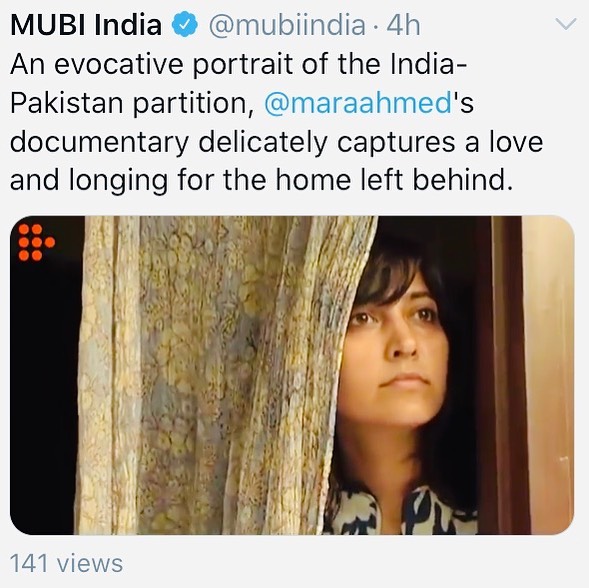
Dividing the Indivisible: Revisiting Partition
THIS review!!! When someone sees, truly sees, your work.
A Thin Wall premiered in 2015, five years ago, but MUBI India just acquired it and made it ‘film of the day’ and Kriti: a development praxis and communication team have been screening it, so entire new audiences are watching it now. It’s more relevant than ever.
What was it like to make A Thin Wall, a film that took seven years to complete?
How does one make a film about ethnic cleansing and violence, yet stitch it together with the movement of delicate saris and dupattas, fabric that hugs and celebrates the bodies of women? How does one tell stories about loss and displacement yet make the language of that telling sing with poignant, thoughtful words articulated by poets, writers, photojournalists, historians and filmmakers? How does one jettison linearity and its oppressive demands for a structure loose enough, capacious enough, to contain multiple layers of pain, memory, politics, history, and emotion? How does one talk about ominous violence, yet intertwine it with hope, with dreams of a better future?
These were some of the contradictions, narratives and sensibilities that were woven together to create A Thin Wall.
Thank you Surbhi Dewan for being my partner in this and for trusting me with the stories of your family. Thank you Mitun Gomes, Zubair Tanoli and Adam Netsky for your lyrical cinematography, Gayane Okhota for breathtaking animation, and Hassan Zaman, Nivedhan Singh and Zeshan M Bagewadi for beautiful original music. Thank you John Siddique, Uzma Aslam Khan, Ajay Bhardwaj, Asim Rafiqui, Jimmy Engineer and Urvashi Butalia for lending your genius to this project.
Thank you to everyone who supported our crowdfunding campaign, worked on post-production, and helped in myriad other ways in Pakistan, India and the United States. Last but not least, thank you to the family and friends we interviewed, some of whom have left us already, and who spoke with such generosity, truth and courage. So grateful for all of you, and for being able to make films.
Read review here.
In conversation with the Filmmakers Mara Ahmed and Surbhi Dewan
Kriti Film Club is inviting you to a scheduled Zoom meeting as part of its Weekend Watch of the documentary, A THIN WALL
Topic: In conversation with the Filmmakers, Mara Ahmed and Surbhi Dewan
Date/ Time: Sunday, Aug 16, 2020 07:15 PM, India
Join our Zoom Meeting
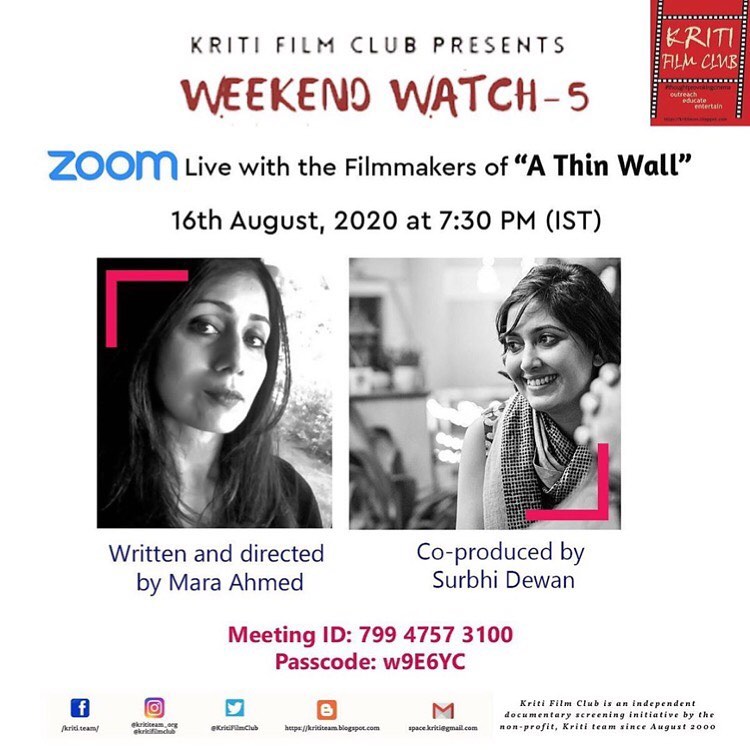
A THIN WALL on MUBI
My film ‘A Thin Wall,’ co-produced by Surbhi Dewan, a documentary that highlights personal stories about the partition of India in 1947, will be streaming on MUBI India starting today! MUBI is a global film platform that provides a hand-curated selection of films on demand, in over 190 countries. Psyched:)
.
MUBI #athinwall #documentary #neelumfilms #partitionofindia #pakistan #india #southasia #subcontinent #oralhistory #personalstories #womenempowerment #bordersseparatepeople
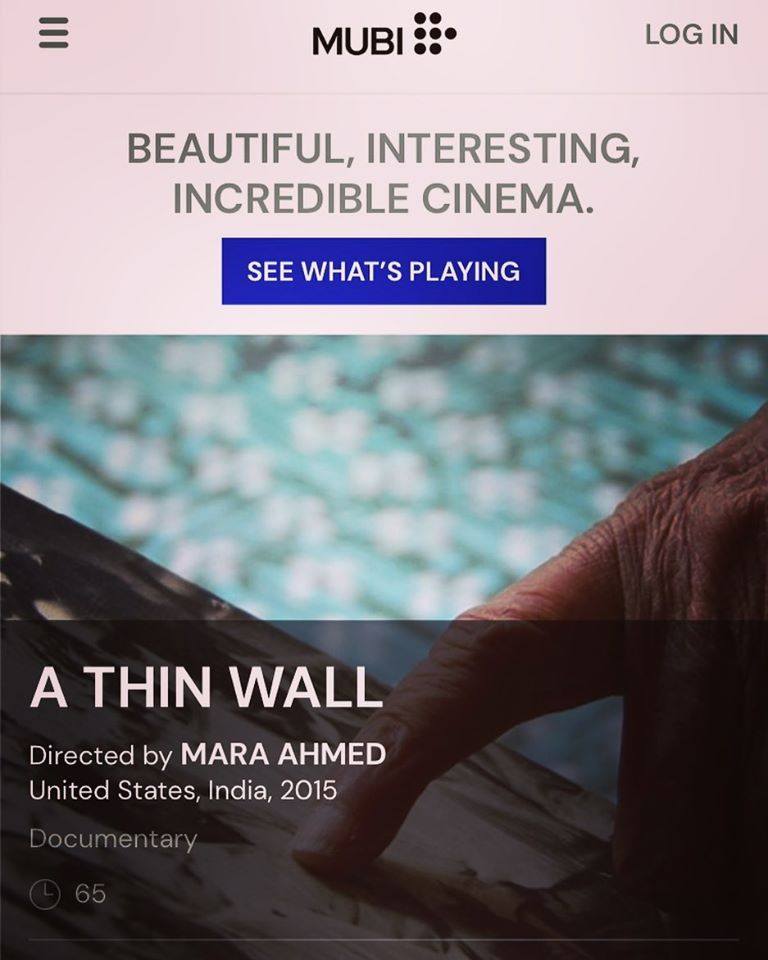
Neelum Films – Films by Mara Ahmed
Dear friends, after a huge amount of work by Mike Boas and myself, I would like to introduce the updated website for Neelum Films. It includes information about ‘The Injured Body: A Film about Racism in America’ and gorgeous photographs taken by Erica Jae of the powerful women we interviewed. I will continue to transcribe those conversations, share quotes, and keep you posted on the film’s editing and post production. Pls visit us here and support our projects. Check out our new website here.
two part interview with instruments of memory
Repost from Instruments of Memory
•
“Inspired by the words in ‘Snowmen’, a poem by Agha Shahid Ali, This Heirloom explores notions of identity by recreating Mara Ahmed’s family history using photographs of her ancestors and juxtaposing them against South Asian architectural details. The vivid and colorful montages contrast with black and white images of Ahmed’s parents, Nilofar Rashid and Saleem Murtza, her maternal grandfather, Rashid Ahmad Qureshi, her maternal great grandfather, Adbul Majeed Qureshi, and her paternal grandmother, Niaz Fatima. By placing her subjects on the wrong side of the India-Pakistan border, Ahmed defies the dividing lines that separated territories more than seventy years ago.”
.
.
Learn more in @mara__ahmed Mara Ahmed’s two-part interview (see comments)
.
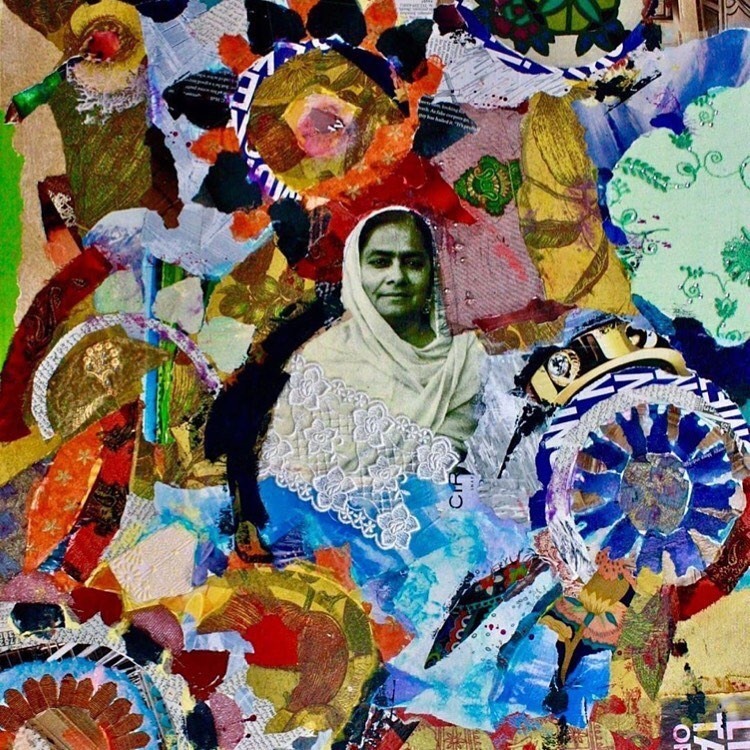
Borderless: A conversation with Mara Ahmed, Part 2
We did this interview in early May, before George Floyd’s murder and the uprising that followed. But I’m glad Claudia asked me about the pandemic and its impact on immigrants and communities of color. Here is the second part of my interview with Instruments of Memory:
It is uncertain how we are going to overcome the recent health and economic crisis that has hit immigrant communities and people of color the hardest.
When I asked Ahmed what would be a way to engage and support these communities at this time, she admits: “This is a big question. Many have said how the pandemic is a great equalizer. Sadly, it’s quite the opposite. The pandemic throws into sharp relief the gross inequities and cruelties of a maniacally greedy, profit-oriented, dehumanizing capitalist system. Income and wealth inequalities in the US are obscene. The global distribution of wealth is even more distorted and disturbing. It’s a suicidal system.
At this time of crisis, we need to provide resources to the most vulnerable: large public projects that provide employment and housing, healthcare, testing and personal protective equipment for all, and equal access to technology, which is essential for remote learning, online work, and social distancing. People’s lives depend on this.
We should also keep in mind that pre-corona life is NOT what we want to return to. This is the time to imagine and organize a just, kind, and decolonial world. We must be wary of disaster capitalism and remain committed to our vision, even in the midst of a disorienting crisis. It can’t be said often enough that we are all in this together.” More here.
INSTRUMENTS OF MEMORY IG TAKEOVER – 5
Repost from @instrumentsofmemory:
As I end my Instruments of Memory IG takeover, I would like to thank my team. Filmmaking is all about teamwork and I am lucky to have collaborated with some exceptionally gifted artists and human beings on ‘The Injured Body.’
I will continue to edit and transcribe interviews and I will be posting images and thoughts on my IG. Please follow me @mara__ahmed to stay in touch and learn more about the film. At this historic moment in our country (and around the world), let’s vow to eradicate racism in our families and communities, but also within ourselves. A better world is possible.
Thank you once again to Instruments of Memory and Claudia Pretelin for this wonderful opportunity.
Photographs of Rajesh Barnabas [Cinematography], Mariko Yamada [Dance Choreography], Erica Jae [Photography], Tom Davis [Musical Score], Imani Sewell [Soprano], Darien Lamen [Sound Design, Photo by Aaron Winters] and Jesus Duprey [Additional Camera]
(see more photos on IG)
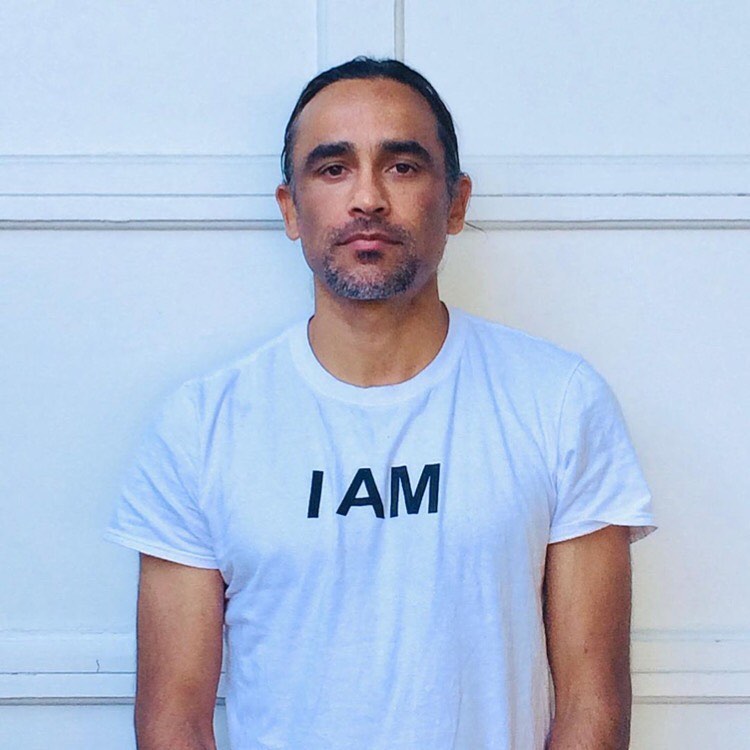
INSTRUMENTS OF MEMORY IG TAKEOVER – 4
Repost from @instrumentsofmemory:
From Claudia Rankine’s Citizen: An American Lyric:
‘Perhaps each sigh is drawn into existence to pull in, pull under, who knows; truth be told, you could no more control those sighs than that which brings the sighs about.
//
The sigh is the pathway to breath; it allows breathing. That’s just self-preservation. No one fabricates that. You sit down, you sigh. You stand up, you sigh. The sighing is a worrying exhale of an ache. You wouldn’t call it an illness; still it is not the iteration of a free being.’
‘The Injured Body’ weaves together an alternative narrative strand told through dance and movement, mostly choreographed by Mariko Yamada. Since prejudice is largely a matter of reading bodies in particular ways and racism is received by and carried in the body, dance is the perfect medium to underline and explore the personal stories shared in the film.
Film stills with Mariko Yamada, Joyce Edwards, Nanako Horikawa, Andrea Vazquez-Aguirre Kaufmann, Cloria Iampretty, Sraddha Prativadi, Sejal Shah, María José Rodríguez-Torrado, Alaina Olivieri, Rosalie M. Jones, and Andrew David
Photography by Mara Ahmed @mara__ahmed

INSTRUMENTS OF MEMORY IG TAKEOVER – 3
Repost from @instrumentsofmemory:
Claudia Rankine in ‘Citizen: An American Lyric’:
‘Yes, and the body has memory. The physical carriage hauls more than its weight. The body is a threshold across which each objectionable call passes into consciousness—all the unintimidated, unblinking, and unflappable resilience does not erase the moments lived through…’
The women interviewed for ‘The Injured Body’ share stories of micro-aggressions and parse their cumulative effect on the mind and body, but they also describe their visions for a world without racism or violence. This is a crucial part of the film, as imagining a better world is an important step towards achieving it.
In order to include a diversity of voices, we interviewed women one-on-one but also in groups, where the conversation was more fluid and informal. Here are some of our panelists.
Luticha A Doucette, Marcella Davis, Khadija Mehter, Muna Lisa, Yogi Indrani, Pamela Kim, Tianna Mañón, Mercedes Phelan, and Erica Bryant
All photography by Erica Jae (see all photos on IG)

INSTRUMENTS OF MEMORY IG TAKEOVER – 2
Repost from @instrumentsofmemory:
My new documentary, The Injured Body, examines racism though the lens of micro-aggressions: slights, slips of the tongue, or intentional offenses that accumulate over a lifetime and impede a person’s ability to function and thrive in the world.
I chose to approach racism by focusing on micro-aggressions because of two reasons. Firstly, as Claudia Rankine explains, we seem to understand structural racism somewhat, but are baffled by racism coming from friends. It is disorienting because it is unmarked. ‘The Injured Body’ hopes to home in on the language needed to ‘mark the unmarked.’ Secondly, personal stories lend themselves to filmmaking because they can help create intimacy and trust, and lay the groundwork for a paradigm shift.
The film spotlights the voices of women of color not only because their stories are misrepresented and frequently ignored by mainstream media, but also because they operate at the intersection of multiple forms of oppression and can articulate the complexity of those experiences. Their testimony and analysis can help broaden traditional understandings of feminism as well as anti-racism work.
Film stills/photographs of Ayni Ali, Amanda Chestnut , Sady Fischer, Lu LutonyaRachel Highsmith, Lauren Jemison, Elizabeth Nicolas, Greta Aiyu Niu, and Tonya Noel
Ayni Ali’s photograph by Arleen Thaler, all other photography by Erica Jae (pls see on IG)
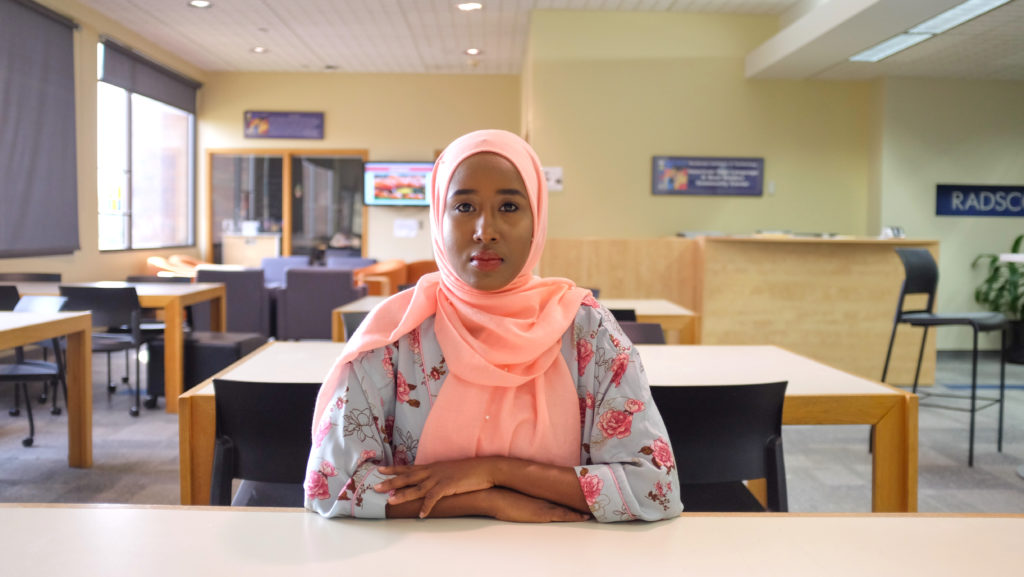
instruments of memory IG takeover – 1
Repost from @instrumentsofmemory:
Hey you all. My name is Mara Ahmed. I am an activist filmmaker and multimedia artist based in Long Island, New York. I’ve lived and gone to school on three different continents. I am many places and cultures but I identify with and am interested in those who end up on the ‘wrong’ side of borders. And history.
I’m working on my fourth film (getting ready to edit) and will be posting mostly about that project – ideas that coalesced into the film and stills from our shoots. Thanks to @instrumentsofmemory and @claudia_pretelin for letting me take over this IG.
My new documentary is called ‘The Injured Body: A Film about Racism in America.’ It’s inspired by Claudia Rankine’s book ‘Citizen: An American Lyric.’ ‘Rankine says that American life is made of moments when race gets us “by the throat.” Only some are nationally noted tragedies.’ Most others are minimized as ‘microaggressions,’ yet they damage deeply.
My favorite lines from the book:
You are not sick, you are injured—
you ache for the rest of life.
How to care for the injured body,
the kind of body that can’t hold
the content it is living?
And where is the safest place when that place
must be someplace other than in the body?
maraahmed #instumentsofmemory #instrumentsofmemorytakeover
activism #art #film #documentary #racism #america #claudiarankine #citizen #microaggressions #theinjuredbody #neelumfilms
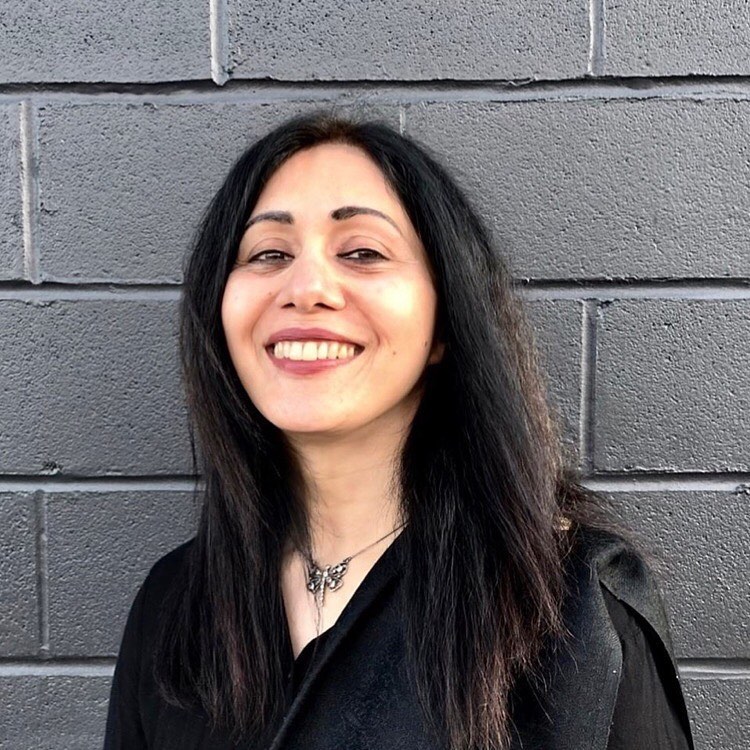
Borderless: A conversation with mara ahmed
The first part of my interview with the brilliant Claudia Pretelin for Instruments of Memory is here. Repost from @instrumentsofmemory
“Mara Ahmed is a Pakistani-American activist, artist, and independent filmmaker. She was born in Lahore, Pakistan, about seventeen miles from the Indian border. Her deeply formative migration pathway has informed her practice and has helped her develop a body of work that addresses notions of history, heritage, and tradition. Deeply connected with her roots and in constant dialogue with her contemporaneity and the political moment, Ahmed’s work creates art that subverts boundaries and connects different cultures with the universality of her topics.”
You can read interview here.

